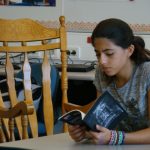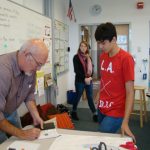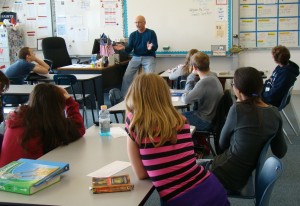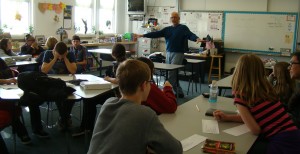For quite a few years now, I have visited with a group of local high school students to talk about writing. It’s a special seminar, usually about 12 or 15 kids are involved. This year, I’m happy to say the students were as engaged and interested as they have been during each of my other visits.
The discussion always starts with me trying to explain why writing well is important. I usually use the “Let’s eat Mom” versus “Let’s eat, Mom” example. One of the kids this year said a comma can save someone’s life. Exactly! She got it. I also talked about the US President using his twitter so often. He has said he does it to communicate directly to the population, without his message being filtered or analysed by media or spokespeople. I guess he has a point with that intent, but his writing in those twitter messages is so bad that whatever his message is often gets lost in what comes across as anger or just plain meanness. I take pains to avoid talking politics with these students, of course, but they agreed with my point here.
I then try to relieve them of the belief all writers make gobs of money, using my own career as an example of that fact. If I had to rely on my writing income to survive, I would be in real trouble!
Two cool words they learned in this session: verisimilitude and alliteration.
Finally, we get into the fun exercise. I start them off with a painfully boring sentence “The man walked across the room.” Divided into groups, they come up with really terrific ways to make that much more exciting. Examples from this year involved zombies dancing in a ballroom and silver-haired ladies sprinting across a dark cavern. I am always happy with the creativity they show.
I can’t wait to visit another class soon.









